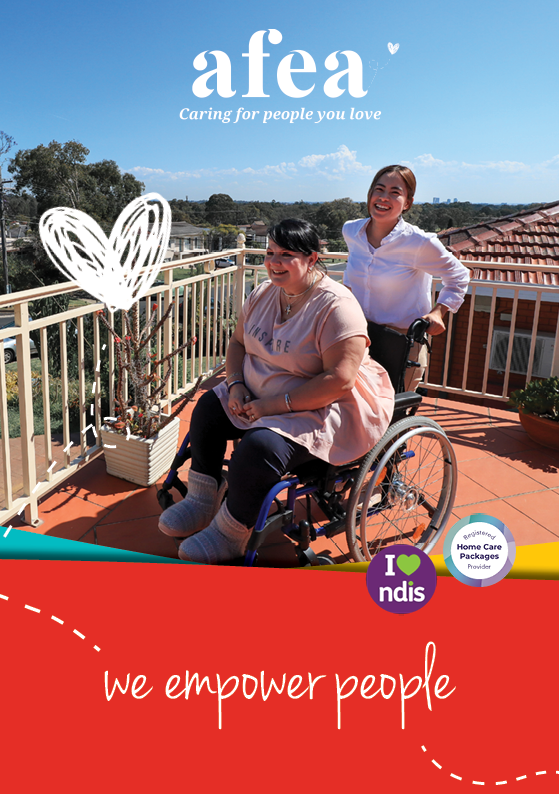Complex care is provided to people who may require a specialist level of support due to higher level medical needs in their daily lives.
They may require this support due to disability or chronic conditions, such as acquired brain injury, spinal cord injury, cerebral palsy, diabetes, epilepsy and other physical and neurological ailments. They may also require complex care support due to a change in personal circumstances, such as returning home after a long hospitalisation or after living in residential aged care.
Looking for the best complex care provider can be a complicated undertaking in itself. Every individual is different, and complex care covers a huge variety of services, from hoist transfers to wound management.
We’ve written this guide to give you some insights about complex care and what to look for in a complex care provider.
What are complex care services?
While there are many everyday tasks that a support worker can help with, such as hygiene or cleaning around the house, some individuals may require more help than that.
You may need certain services and supports that can only be provided by people with the appropriate skills and qualifications.
For example, a support worker can provide support to a person with specialised feeding requirements, such as percutaneous endoscopic gastrostomy (PEG) feeding. However, the support worker needs to know, among other things, the function of the equipment components and what to do if the PEG tubes become dislodged.
Other complex care services include:
- Hoist transfers – If you have limited mobility, you may need someone to operate a hoist transfer to move you from the bed to the wheelchair. You may also need support while you shower or use the toilet.
- Urinary catheter care – If you have multiple sclerosis or spinal injury, you may need to wear a catheter. In terms of support, you’ll need someone to insert the catheter and remove and replace the collection bags.
- Complex bowel care – While bowel care is a routine part of support work, you may require a specialist level of support in certain cases. For example, you may need someone to regularly observe your bowel habits and administer laxatives, enemas or suppositories when required.
- Tracheostomy care – If you have a tracheostomy, you need support workers who have knowledge of ventilation, first aid and CPR. Replacing the tracheostomy dressing is also a complex procedure. It usually requires two workers to be present to ensure your safety.
- Pressure care and wound management – You may need help dressing your wounds, or have to be regularly moved to avoid developing pressure sores.
- Complex mental health support – Support workers may work with a mental health team, including a behaviour support practitioner.
You can read more here: What are complex care needs?
What to look out for in complex care providers
Qualifications
Does the complex care provider have staff with the right qualifications? Certain care supports can only be carried out by qualified workers. This can be a person with nursing qualifications, a support worker holding certifications or a support worker trained and supervised by a health worker.
NDIS registered providers are also assessed against the skills descriptors within the NDIS Practice Standards. These standards were put in place to make sure NDIS participants receive high quality and safe supports.
Your care provider should be able to conduct a holistic assessment. Taking into consideration your funding and what you want to achieve in everyday life, they can give you advice on the supports that will best help you achieve your goals.
Availability
Do they have support workers available 24/7? You may require round-the-clock monitoring or overnight care. Ask the provider if they have trained staff who can stay with you at home. They should also provide a number that you or your family can call after hours in case you need help or have an urgent query.
Personalised Support
Compassionate Carers
Stella is one of our complex care clients. When she was onboarded with Afea, we matched her up with a few of our carers. At first, she was understandably anxious about trusting her care to someone new. To help her adjust to her new care arrangements, her husband took a month off work.
“But then came the day where he had to leave to go to work and I was devastated,” Stella said. “I was thinking, there’s no way that these people can look after me the way my husband does. But they made it so easy for me.” Read more about Stella’s story here.
Specific Personal Care Needs
Meanwhile, our client Joanne needs carers who are physically strong. She lives with full body lymphoedema, wherein an accumulation of excessive amounts of lymph fluid results in the swelling of parts of her body.
Lymphoedema has no cure, but its symptoms can be reduced and managed with appropriate intervention. This includes wearing compression garments, which can help limit fluid build-up and assist with drainage. Joanne wears a body suit all the time.
Her carers from Afea give her a shower in the morning and help get her into the body suit to start her day. She needs two carers to assist her with this. “It’s a bit of a struggle, but we get it on.”
“They often make me breakfast, which is really nice, because I’m rushing to get out because I have a lot of appointments. They’re all supportive. They do the best that they can.”
It is normal to be apprehensive about the carers you will be receiving in your own home. Like Stella, you may have been used to receiving care from your own family. Ask your provider how they match new clients with carers.
When we match carers to our clients, we consider many factors, including culture, language, beliefs, interests and personality. This way, our support workers can provide the highest level of care – and put you at ease!
Complex Care at Afea
With more than 15 years’ experience in the industry, Afea Care Services are experts in providing complex care support. You or your loved ones can speak to our team and we will find a solution for your particular complex care needs.















